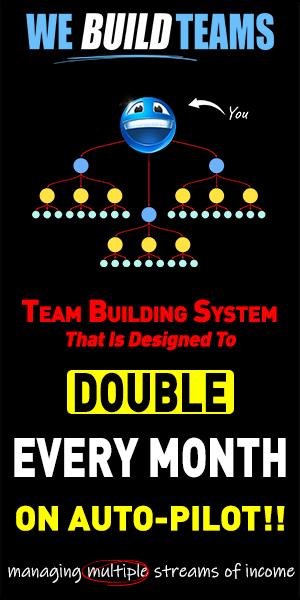When handling objections in your network marketing business, using the words “feel,” “felt,” and “found” can be a powerful tool to help you connect with potential customers and address their concerns in a non-confrontational way.
- “Feel” – When a potential customer expresses a concern, you can use “feel” to acknowledge their feelings and show empathy. For example, if a customer named Sarah says, “I don’t know if this product is right for me, I don’t want to waste my money,” you can respond with, “I understand how you might feel hesitant about trying a new product, Sarah. But, I have found that it has been incredibly effective for many of my clients and I’m confident it could help you too.”
- “Felt” – If you have faced a similar objection in the past, you can use “felt” to share your own experience. For example, if a customer named John says, “I don’t believe these supplements really work,” you can say, “I felt the same way when I first started, John. But after trying the product for myself, I was amazed by the results. I’ve seen a noticeable improvement in my energy levels and overall health.”
- “Found” – When a potential customer expresses a concern, you can use “found” to provide evidence and share your personal experience. For example, if a customer named Rachel says, “I’m worried about the cost,” you can respond with, “I found that taking the supplement regularly helped me to increase my energy levels, improve my overall health, and even save money on doctor’s visits. And the cost is more than worth it for the benefits I’ve received.”
By using these words in your conversation, you can create a more personal and empathetic connection with your potential customers, helping them to feel more comfortable with your product and business. Additionally, using real names and examples can help make your responses more relatable and genuine.
- “Helped” – When addressing objections, you can also use the word “helped” to share the positive experiences of others who have used the product. For example, if a customer named Tom says, “I’m not sure if this product is safe,” you can respond with, “I understand your concern, Tom. Many of my clients have used this product and have found it to be safe and effective. In fact, one of my clients, Karen, struggled with joint pain but after taking the supplement, it helped. She noticed a significant improvement and has been able to return to her favorite activities without discomfort.”
- “Discover” – When addressing objections, you can use the word “discover” to suggest that the customer try the product for themselves and see the benefits. For example, if a customer named Lisa says, “I don’t believe these supplements really work,” you can respond with, “I understand your skepticism, Lisa. But why don’t you give it a try and discover the benefits for yourself? Many of my clients have been pleasantly surprised by the results they’ve seen.”
- “Experience” – The word “experience” can be used to encourage the customer to try the product and see the benefits for themselves. For example, if a customer named Alex says, “I’m not sure if I need this product,” you can respond with, “I understand your uncertainty, Alex. But I encourage you to try the product and experience the benefits for yourself. Many of my clients have found that they feel more energetic, healthier, and happier after using the product.”
By using these words and phrases in your conversation, you can address objections in a way that is non-threatening, supportive, and encouraging. You can help potential customers see the benefits of the product, feel more comfortable with the product and your business, and make an informed decision about whether it is right for them.

